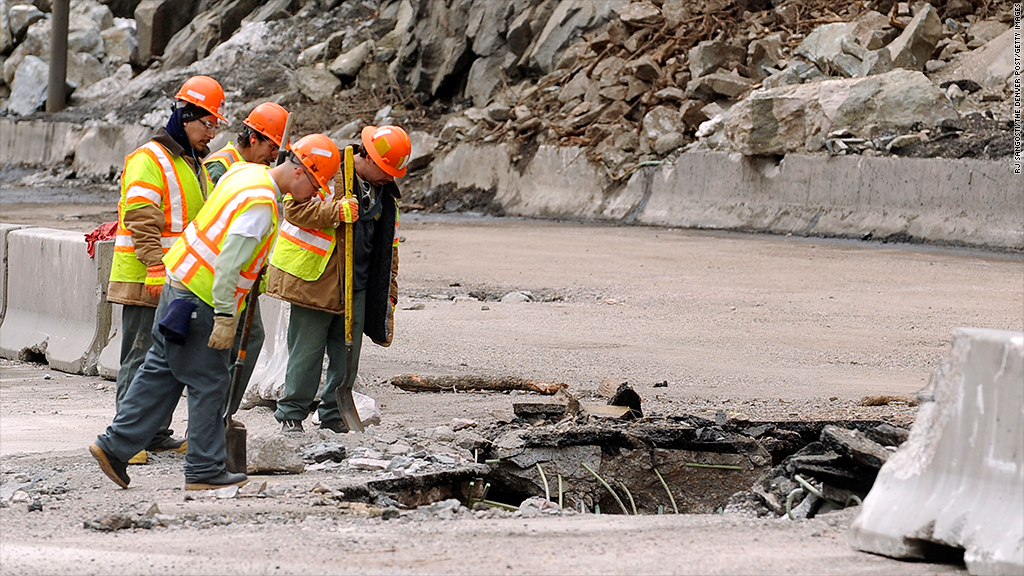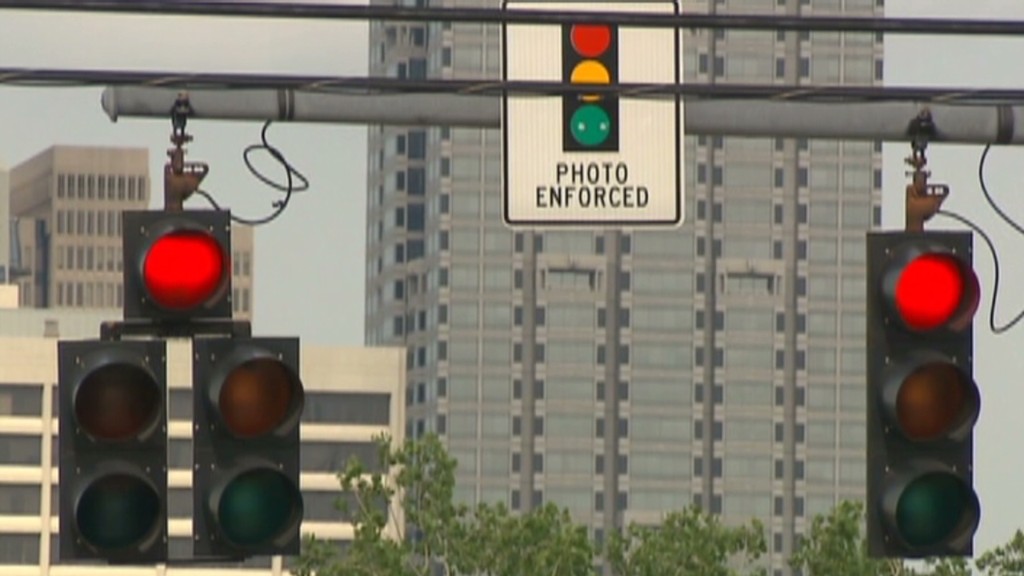
Highways and bridges -- and other critical parts of the nation's transportation infrastructure such as railways -- need serious upgrades and repairs.
How serious? The American Society of Civil Engineers gives U.S. infrastructure a D+ in terms of condition and performance.
But federal transportation funding has been highly uncertain for years. And this year is no exception.
The Highway Trust Fund, which is primarily supported by the federal gas tax, is facing a shortfall this summer. So if Congress doesn't act soon, the government will have to slow payments to states.
And that would put many projects in jeopardy at the height of highway repair season.
The questions are how much more do lawmakers want to dedicate to the Highway Trust Fund, and where do they want the money to come from?
It's not just a short-term question. The Trust Fund is projected to spend more than it takes in for years to come.
One reason: The federal gas tax hasn't been raised from 18.4 cents a gallon for 20 years.
Related: Gas taxes: What you pay
Had it been adjusted for inflation all along, it would be about 29 cents today, according to the Congressional Budget Office. And the 24.4 cents diesel tax, which also provides dedicated highway funding, would be closer to 39 cents per gallon.
"We are trying to build a 2014 infrastructure system with 1993 dollars. This is obviously an untenable formula," the ASCE notes on its blog.
Another reason for anticipated shortfalls over the next decade: More fuel-efficient cars.
The engineering group, along with the AAA, are proponents of raising the federal gas tax.
Some lawmakers are as well. They've proposed raising the per-gallon tax gradually over a few years and then tying it to inflation thereafter.
To date, however, lawmakers' have simply chosen to add to what the gas tax brings in with additional money from general federal revenue -- an estimated $55 billion since the end of 2008.
General revenue now accounts for more than 25% of spending on federal surface transportation programs, according to transportation expert Emil Frankel, a senior adviser at the Bipartisan Policy Center, who just published a new paper on the issue.

Frankel said policymakers should decide whether they want to fund transportation investment by a hybrid of user fees and general revenue, or solely by user fees, the way electricity and water services are.
It's a question lawmakers are expected to dodge -- at least this summer.
The most likely scenario is that Congress will cut a deal to temporarily shore up the fund using general revenue, because proposing a gas tax hike, while never popular, could prove toxic in an election year.
"This is about jobs and local politics and fixing potholes," said Greg Valliere, chief political strategist for the Potomac Research Group.


